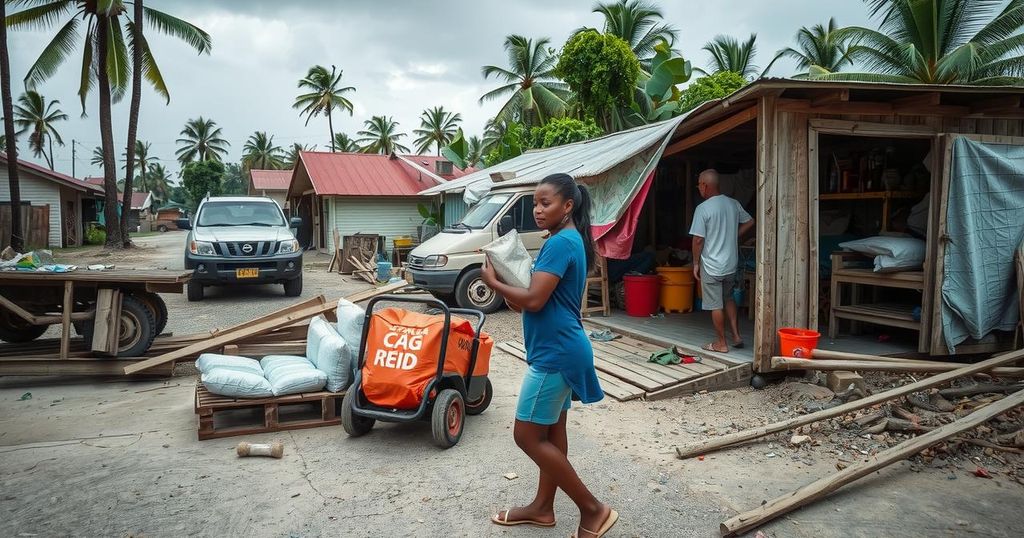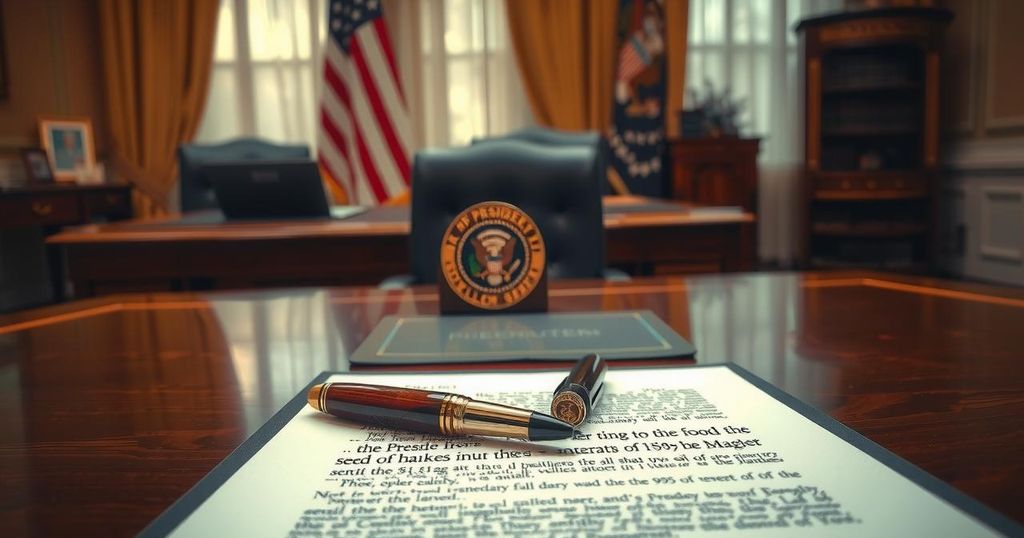Mayotte Implements Curfew and Races to Deliver Aid After Cyclone Devastation
Mayotte has declared a curfew after Tropical Cyclone Chido wreaked havoc over the region, leading to at least 22 fatalities and significant injuries. The efforts to deliver aid are underway, but local leaders are concerned about a potential health crisis due to delays and the undocumented status of many residents, complicating evacuation response. Political turmoil in France amplifies the challenges faced in disaster management during this critical time.
In the wake of Tropical Cyclone Chido, which devastated the French territory of Mayotte, authorities have implemented a curfew from 10 p.m. to 4 a.m. to maintain order and facilitate the delivery of much-needed aid. The cyclone, which struck with winds reaching 124 miles per hour, has tragically resulted in at least 22 confirmed deaths and left hundreds, if not thousands, unaccounted for. Mayor Ambdilwahedou Soumaila reported over 1,400 injuries and emphasized the critical need for food and water as rescue efforts continue amidst the widespread destruction of neighborhoods.
Reports indicate that the aid efforts are being organized from Réunion, a nearby French island, and there are plans to establish a field hospital in Mayotte to support the beleaguered healthcare system, which is struggling to manage the influx of patients. However, local leaders have expressed concerns about a potential health crisis if assistance does not reach the displaced residents promptly. With a significant portion of Mayotte’s population consisting of undocumented immigrants, apprehensions regarding capturing or deportation may have hindered their access to evacuation shelters, further complicating disaster response operations.
This calamity occurs against a backdrop of political uncertainty in France, further emphasized by the recently appointed Prime Minister François Bayrou’s absence from emergency response meetings in Paris. In light of this pressing crisis, the need for decisive leadership is paramount, as residents of Mayotte navigate the aftermath of this devastating natural disaster.
Mayotte, an archipelago located in the Indian Ocean and a department of France, has been facing challenges related to immigration, poverty, and natural disasters. The region is known for its vulnerable infrastructure, particularly in shanty towns where many undocumented immigrants reside. The recent onslaught of Tropical Cyclone Chido has underscored the precarious nature of life in Mayotte, as the cyclone caused unprecedented damage and loss of life. French officials have initiated coordinated rescue and aid efforts, highlighting the need for strong governance and decisive action in response to such exigencies, especially as France finds itself embroiled in its own political turmoil.
The cyclone’s devastation has cast a grim shadow over Mayotte, prompting immediate governmental action including a curfew and aid mobilization. With thousands possibly affected and a burgeoning health crisis on the horizon, local leaders have emphasized the urgent requirements of food and water. The catastrophic storm, coupled with the complexities of undocumented residents’ status, raises critical questions about disaster preparedness and the need for effective government response during such crises. The unfolding situation requires vigilant oversight to ensure humanitarian needs are met efficiently and compassionately.
Original Source: www.nytimes.com




Post Comment